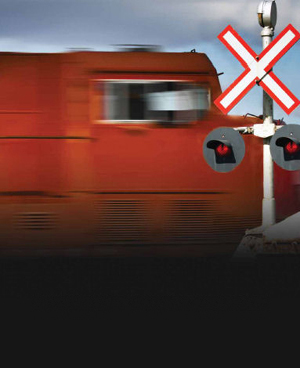|
Thomas Mulcair Is Wrong on Rail Deregulation |
|
Thomas Mulcair, NDP leader, has linked the
July rail disaster at Lac-Mégantic, Quebec, with what he calls “years of
government deregulation.” In doing so, he creates a compelling narrative
for the Lac-Mégantic was a tragedy of such consequence that surely,
something other than the Montreal, Maine and Atlantic Railway must be to
blame. Deregulation has become Mulcair’s whipping boy since the
accident, and, although he’s not alone, there are problems with this
conclusion.
First, if deregulation were the reason for the tragedy, rail accident
statistics over the years would have pointed in that direction. The
opposite is true. Railway safety has dramatically improved over the
years since de-regulation.
 Second, the claim that new regulation would better address safety
contradicts the history of rail regulation in North America. Both in
Canada and the United States, over-regulation of rail had brought
railways to the brink of financial ruin. Lacking the funds even properly
to maintain tracks, safety deteriorated. Standing derailments were not
uncommon. Rail was eventually deregulated in the U.S. in 1980 and more
gradually in Canada thereafter. Second, the claim that new regulation would better address safety
contradicts the history of rail regulation in North America. Both in
Canada and the United States, over-regulation of rail had brought
railways to the brink of financial ruin. Lacking the funds even properly
to maintain tracks, safety deteriorated. Standing derailments were not
uncommon. Rail was eventually deregulated in the U.S. in 1980 and more
gradually in Canada thereafter.
A Transportation Research Forum (TRF) study in 1997 focused on the link
between safe rail operations and deregulation. It found that since
deregulation in the U.S., safe rail operations had increased
dramatically with the rate of collisions and derailments at “about a
quarter of what it was in the late 1970s.” To determine whether
deregulation was the cause for increased safe operations, the study
examined the factors that lead to transportation safety regulation in
the first place.
Safety regulations are principally enacted to protect consumers who
cannot be expected to know the levels of safety in their transportation
provider. Yet, rail customers are highly informed and rationally compare
pricing and safety records of railways on a daily basis, the study found.
Poorly informed consumers are much more likely found in the airline
business.
The TRF study found safety lapses in two types of railways. The first
are the small railways, known as short lines. These were established
since deregulation when the large railways were allowed to shed their
uneconomic lines. The second is the railway that reduces expenditures on
accident prevention while hoping its customers don’t notice and take
their business elsewhere. The study found that scrutiny by the insurance
industry and by the regulator on those two types of railways provides
the best answer to safety.
|
|
“A return to over-regulation
of rail would be a serious mistake. Safe rail operations
were not the only downside of the highly regulated
environment. Growth of the industry stalled, rail rates
rose, service was poor, and secondary industries, such as
the grain industry, remained frozen in time.” |
|
While Mulcair dismisses the Canadian system of rail safety regulation as
“self regulation,” it is not so. The Canadian approach complements
rather than replaces traditional compliance inspections. Similar safety
systems to that governing Canadian rail are in place in Canada’s air
industry and in most provincial railways. In fact, the International
Civil Aviation Authority (ICAO) recommends that all aviation authorities
implement this regulatory system.
There are two methods of rail safety oversight. The first is the
traditional approach of providing minimum standards with inspections to
ensure compliance. The Canadian approach differs. It requires railways
as well as Transport Canada to develop safety rules. The rules are
intended to encourage railways to identify hazards and to take steps to
minimize risk. The rules, either those developed by Transport Canada or
industry, require approval by the minister. Enforcement through
inspectors and auditors is mandated by the legislation.
The benefit of the Canadian approach is that it is less static than the
traditional method.
Behind the Canadian system is the recognition that the rail industry,
like the air industry, is driven by technological, engineering and
scientific advances. In rail, new braking systems and rail and road bed
flaw detectors, for example, are under continuous upgrade. Regulation, a
fixed-in-stone solution, stifles creative solutions and advances.
Strengthening of the rule-making process and better quality drafting of
the rules may improve safety. The 2011 Auditor-General’s Report pointed
to the serious lapse by regulators in ensuring safety compliance. These
are better approaches than a return to over-regulation.
A return to over-regulation of rail in Canada
would be a serious mistake. Safe rail operations were not the only
downside of the highly regulated environment. Growth of the industry
stalled, rail rates rose, service was poor, and secondary
industries, such as the grain industry, remained frozen in
time. Traffic diversion from rail to
road increased. Deregulation benefitted railways and consumers alike.
Brookings Institution’s transportation expert Clifford Winston claims
that de-regulation put rail on “a secure footing” and turned out to be a
“great boon for shippers.” So great has been the benefit to consumers,
he claimed, that initiatives to re-regulate rail in the United States
since have “gained little momentum.”
|
|
 |
|
First written appearance of the
word 'liberty,' circa 2300 B.C. |
|
Le Québécois Libre
Promoting individual liberty, free markets and voluntary
cooperation since 1998.
|
|

